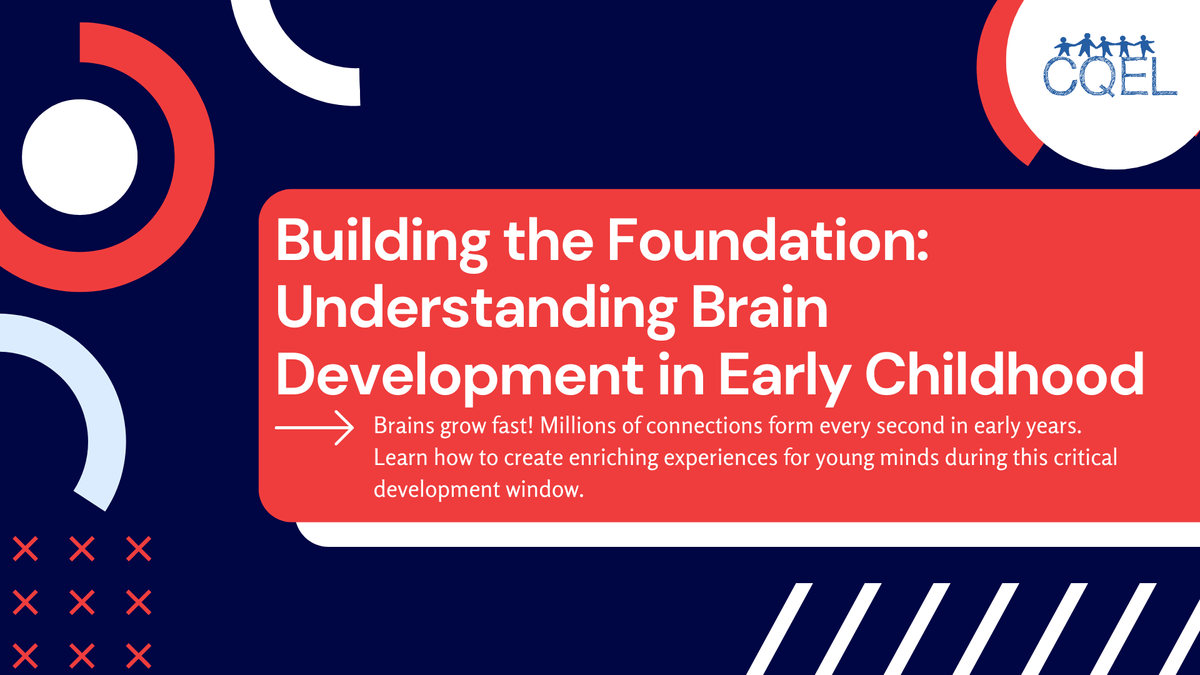Building the Foundation: Understanding Brain Development in Early Childhood
Brains grow fastest in the early years. Learn how to create enriching experiences for young minds during this critical window.

Imagine a time when the brain is experiencing explosive growth, forming millions of new connections every second. This isn't science fiction; it's the remarkable reality of early childhood brain development. The concept of neuroplasticity, the brain's ability to adapt and change throughout life, is most prominent during these early years. From birth to around age 5, the brain undergoes a period of critical development, laying the foundation for future learning, cognitive abilities, and social-emotional well-being. Understanding this critical window of opportunity is essential for childcare providers in California, as it empowers them to create enriching experiences that nurture young minds during this pivotal stage.
The early years are a time of remarkable brain growth. By age 3, a child's brain has reached nearly 80% of its adult size! This rapid development involves the formation of synapses, the connections between brain cells. Think of these connections as the information highways of the brain. Early experiences play a crucial role in this process. The more a child interacts with their environment, the more synapses are formed. However, the brain doesn't simply keep building connections indefinitely. Through a process called synaptic pruning, unused connections are eliminated, while frequently used ones are strengthened. This ensures the brain functions efficiently and focuses on the most important pathways for learning and development. In essence, the experiences a child has in early childhood shape these neural pathways, building the foundation for future success in school and life.
Several key areas of brain development occur during early childhood, each with lasting implications. Executive functioning skills, which include planning, impulse control, and problem-solving, begin to develop in the early years. Exposure to rich language environments during this critical window fosters strong language development, setting the stage for effective communication and literacy skills later in life. Social-emotional development is also crucial in early childhood. Through positive interactions and secure attachments with caregivers, children learn to manage emotions, develop empathy, and build healthy relationships.
As childcare providers in California, you have a unique opportunity to nurture this amazing process of brain development. By creating stimulating environments filled with age-appropriate toys, open-ended play opportunities, and materials that encourage exploration, you provide the foundation for building strong cognitive skills. Remember, positive interactions and responsive caregiving are just as important. Warm and nurturing relationships with caregivers promote feelings of security and well-being, which in turn, optimize brain development. Finally, never underestimate the power of play! Play is not just about fun and entertainment; it's essential for brain development. Through play, children experiment, solve problems, develop creativity, and learn valuable social skills. By incorporating a variety of play opportunities into your daily routines, you contribute significantly to a child's cognitive, social, and emotional growth.
The early years are a time of incredible potential. By understanding the remarkable process of brain development and its lasting impact, childcare providers can create nurturing environments and positive experiences that shape young minds for the future. Resources like Zero to Three, The Center on the Developing Child at Harvard University, and the California Department of Education's Early Learning and Development Division offer a wealth of information and practical strategies to support you in this vital role (https://www.zerotothree.org/, https://developingchild.harvard.edu/, https://www.cde.ca.gov/sp/cd/). As an aspiring childcare provider in California, embrace the knowledge that you are not just caring for children; you are helping to build the foundation for their future success.
